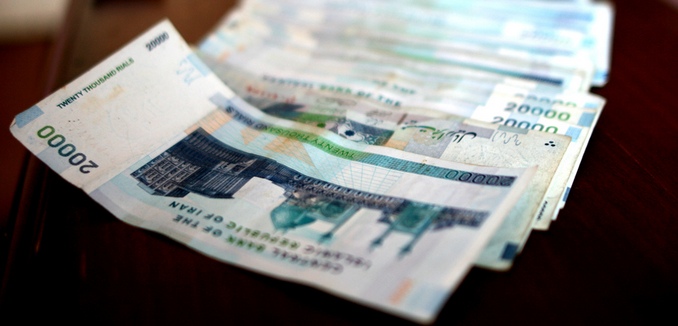In The Central Pillar Supporting the Iran Deal Has a Big Crack In It, Emanuele Ottolenghi explains how the United States and its allies wasted the leverage they had gained through years of building international sanctions against Iran, and how that will undermine the effectiveness of the emerging nuclear deal.
The United Nations Security Council imposed nuclear-related sanctions on Iran six times between 2006 and 2010. Through tough diplomacy, an effective sanctions regime was put into place, via that forum as well as through moves by the United States and European Union.
Since the Security Council passed the last of these resolutions, Russia and China have shown no desire to expand sanctions further. As a result, the measures that are most credited for bringing Iran into serious negotiations—the banking and financial restrictions passed between 2010 and 2012—were mainly autonomous U.S. and European Union sanctions. Globally, large corporations and financial institutions grudgingly went along with them. In addition, the painful fines inflicted on HSBC, BNP Paribas, and Standard Chartered had a chilling effect on the business world. Few dared question, let alone challenge the administration’s willingness to use economic pressure as its principal tool of coercive diplomacy. Who wants a $9.8 billion fine, after all?
Global compliance left Iran cut off from financial markets. Its energy sector rusted, while its oil sales plunged to a quarter of its production abilities. Its economy teetered on the brink of the abyss. But these achievements rested largely on three assumptions: The Obama administration was determined to enforce sanctions, come what may; America’s allies mostly supported or at least acquiesced to Washington’s punitive actions; and Iran had no effective recourse. Today, on the eve of a nuclear agreement, none of this is true any longer.
But once the combined effect of the Security Council, American, and European sanctions took a devastating toll on Iran’s economy, the United States and its partners decided to change their strategy.
Instead of capitalizing on these remarkable achievements, however, the Obama administration took a different course of action. Overnight, Iran’s economic bust became a boost. The Joint Plan of Action that was adopted by Iran and the six world powers in November 2013 is comparable to a marathon in which the lead runner stops 100 meters from the finish line to wait for his opponents. The underlying logic of punitive economic measures, after all, was to enhance Western leverage. The overarching goal was to force Iranian concessions that, without sufficient leverage, Tehran would be unwilling to make. Yet as soon as the interim nuclear agreement was reached, Washington insisted—in defense of its premature suspension of key sanctions against Iran’s automotive sector and petrochemical exports—that the goal of sanctions was to return Iran to negotiations, not to extract a set of non-negotiable parameters for a deal. The Obama administration has been equivocating about the purpose of its sanctions ever since, with the result that it is undermining its own leverage even as it negotiates away the last elements of the looming agreement. …
In fact, the whole purpose of sanctions was to give the Iranian regime a stark choice—keep the Ayatollahs’ nuclear weapons program at the risk of economic collapse, or survive in exchange for dismantling it. Iran’s economic predicament on the eve of the interim agreement shows that Tehran was dangerously close to that moment of truth, and sanctions relief in exchange for reversible concessions gave the Islamic Republic the kind of breathing space it had been denied until then. Considering how hard it was to get to that point, this was the worst possible unforced error that diplomacy could make. …
Nobody can fault the Obama administration’s public diplomacy efforts. Washington assiduously messaged that Tehran was not open for business. As with so many other aspects of the administration’s foreign policy, however, the problem was that even an effective PR campaign is no substitute for policy itself. As a result, twenty months of sanctions relief, coupled with the anticipation of the sanctions’ ultimate demise, resulted in a resumption of trade, a modest economic recovery, and a surge in interest among Western companies keen to invest in Iran’s economy once sanctions are lifted.
As an example, Ottolenghi mentions the case of Mahan Air, an Iranian airline that was reported to have purchased eight Airbus jets in May, in defiance of American sanctions. According to subsequent reports, the United States knew of the sale and failed to block it. While the United States Treasury Department has taken action against some of those involved in the sale since the news was reported, “the U.S. has yet to name and fine the European suppliers of the eight aircraft,” whose names are easy to find.
Due to the relaxing of sanctions and the failure to enforce existing ones, Iran doesn’t fear Obama’s threat to “snap back” sanctions in case of Iranian violations of the emerging nuclear deal.
Towards the end of his essay, Ottolenghi summed up the problem.
It is not that the Ayatollahs do not take U.S. sanctions seriously. They took them seriously enough to engage in genuine negotiations for the first time in years. It’s that, in general, they look at America and no longer see a threat. Their hatred of America was once balanced with a healthy dose of awe and respect for the pain it was both capable of and willing to inflict on its enemies. But in 2015, Tehran knows that a president who said “Assad must go” in 2011 can no longer be believed. The ayatollahs look at the president who threatened a military response to the use of chemical weapons in Syria and then blinked. What they see are empty threats.
[Photo: bastian / Flickr ]




